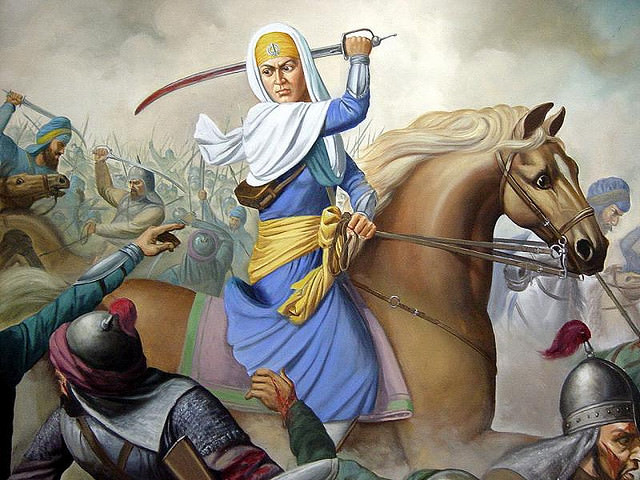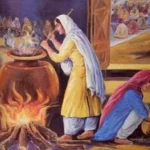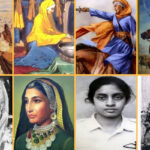My conviction and confidence as a young Sikh lady have always been founded in my Sikhi. Growing up in a huge household with a brother and other male cousins, I never noticed a difference in how I was raised. If anything, I was encouraged to pursue a job, to be self-sufficient, and to never rely on a guy for my success or stability. Gender equality has always been a part of our history and faith. I was taught about the legacy of Sikh soldiers from whom I descended—other Kaurs who had died on the battlefield, in service, and devotion. I was shown lines from the Sri Guru Granth Sahib that stated that we were all equal because we were all created by the same Creator.
Perhaps this is why, as I grew older and connected with more people in the community, I learned that not all young Sikh girls had grown up with the same perspective. I understood that older males in the community perceived me as a young girl who should remain in the background, never rising to the position of leadership that I had been raised to seek. Instead, as I progressed through puberty and adolescence, the community encouraged me to become a desirable companion for a strong guy who would transform the world while I sat idle and watched.
In February, I spent two weekends in a row attending Sikh-related events. The first was a leadership retreat for Sikh women who had concentrated their efforts on activism and increasing awareness of crucial issues both inside and outside the community. The second event was an academic conference devoted to examining issues concerning Sikhs in the history, present, and future. While attending and participating in both, I saw a common theme: a dearth of Sikh women in visible (leadership) roles, as well as the exhaustion of those who were in those positions. While the retreat I went to attempted to grow the women who were pursuing that work, notably by providing space for them to support and care for one another, there was still a sense of the work that needed to be done, of the mismatch between our worlds (depending on ethnicity, religious practice, age, career, and other factors), and how alone we all felt at work.
As the only young Sikh woman presenting her work that day at the conference, I recognized how, even in my community, I felt the same acute isolation that I often felt in non-Sikh contexts.
I had never heard about this in the stories of Sikh women I had grown up with—the disgust, reaction, and rejection for merely being vocal, opinionated, and independent. The daily reminder that (even at the age of 24), I’m not growing any younger, and the time to find a partner is swiftly dwindling. Encouragement to abandon job ambitions in favor of life as a mother and housewife. I had no idea how isolated Sikh women leaders must have felt until I heard their names.
They had distinguished themselves from the society and culture that they were a part of by striving to achieve the values of gender equality that our Creator had instilled in us. How lonely this must have felt.
But I’ve also recognized that these ladies were perhaps much more grounded by trust and love that I’ve yet to create in the same unwavering way they did—their Sikhi. By believing in their Divinity and their rightful place as leaders, artists, thinkers, and doers, these women were unshaken by any scorn for their efforts.
They fully embodied the sentiment expressed in this shabad (hymn):
ਮਨ ਤੰੂ ਜੋਤਿ ਸਰੂਪੁ ਹੈ ਆਪਣਾ ਮੂਲੁ ਪਛਾਣੁ ॥
Recognize your origin, O my thought, you are the manifestation of the Divine Light.
Although I’ve known (and liked) this Shabad since I was a child, my practice needs improvement. What does it mean to recognize my Divine origin? How would I go about my day if I truly knew and believed that about myself and those with whom I interact? What would the legacy of Sikh women look like today if those inside and outside the Sikh community regarded us as equal community leaders? If we recognized our common, Divine beginning, how would we acknowledge people’s stories? As I progress through my activism work, I aspire to build a more solid habit of reflecting on the Divinity of individuals with whom I interact (and those with whom I choose not to interact) to leave a greater legacy of Sikh women. Women’s achievements are frequently neglected since, for the most part, males write history.
For generations, women of the Sikh faith have battled, ruled, taught, and served in India. They have led organizations, communities, and revolutions. These accomplishments are admirable in and of themselves, but they are much more astounding in light of the extreme patriarchy and societal misogyny against which these women were fighting.








